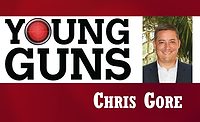In It for the Long Haul: History Shapes the Present and Beyond for Sutter Roofing

At University Town Center Mall in Sarasota, Fla., the Sutter Roofing crew delivered and installed nearly 250 truckloads of materials over 40,000 man hours to complete the extensive project in just over one year. All photos courtesy of Sutter Roofing Inc.


Roofing work taking place atop the Waldemere Medical Building in Sarasota, Fla.

Sutter Roofing installed 33,000 square feet of flat roofing and 25,000 square feet of tile at the Positano Condos in Longboat Key, Fla.

Founder C.P. Sutter and his crew atop the Harrison County Courthouse in Clarksburg, W.Va., circa April 1932.

The company's original West Virginia office in 1906.

Today, the Sutter Roofing staff includes (from left) John Kenney, vice president of sales and estimating; Theresa Leach, director of human resources; Brad Sutter, executive vice president; Stephen Sutter, chairman; Doug Sutter, president; and Tom Henry, chief financial officer.

C.P. Sutter and his son, Wilson, in their office in September 1941.








While many years have passed since C.P. Sutter started his Clarksburg, W.Va.-based commercial roofing company in 1902, the fourth generation continues the long-running success of the company. “Sutter Roofing was founded by my great grandfather, who worked in all phases of roofing, eventually specializing in sheet metal, interior stamped metal ceilings and ornamental cornices,” said Doug Sutter, the current president. A West Virginia University graduate, Doug began his roofing career as a technical representative for Carlisle and then worked with another roofing contractor for a couple years, eventually joining the family business in 1989.
Sutter Roofing’s business shifted during the 1930s and 40s to steel piping fabrications designed as part of a special dust-collection operation for mining and toxic plant environments. It was a large business segment for decades, but eventually the market diminished and became very competitive as deep mining gave way to newer strip-mining methods.
By the late 1960s, the business had returned to commercial roofing and sheet metal. “We used a great deal of Owens Corning PPR (asphalt) products at the time. But, by the mid-70s, the base of our work shifted to EPDM with Carlisle and Firestone,” Doug explained. “We quickly became single-ply roofing experts, and when my father, Stephen, learned that Florida had virtually no single-ply contractors, he saw an opportunity and founded our Florida business in 1979.”
While Sutter Roofing’s core expertise lie in EPDM and single ply, Florida remained an asphalt market, and by the mid-1980s the company adapted its business strategy to the demand. Asphalt became one of its top-selling products through the 90s and early 2000s, which remains the case today.
Doug’s uncle, David Sutter, continues to run the West Virginia operation, while Doug, his father and his brother, Brad, are joint owners of Sarasota, Fla.-based Sutter Roofing Inc. To meet statewide demand, the company has additional operations in Ft. Myers, Tampa, West Palm Beach and Orlando, with all payroll, accounting and purchasing functions centralized in Sarasota. While the family business has evolved and expanded throughout the years, the company’s values have remained unchanged.
Daily Operations
Sutter Roofing’s business processes follow a traditional model, where customer calls go to the estimating department and jobs are bid based on location. A detailed bid goes back to the customer using The Edge estimating software to package all of the numbers. “Depending on the number of total jobs, there’s always an ebb and flow in each office,” Doug noted. “If one operation is busier than another, we can supplement crews from one of our other offices. We bid work according to our schedule and don’t subcontract. Also, we can move re-roofing jobs around easier than new construction, and we have a track record of always meeting schedules.”
The company’s sales and estimating are directed by John Kenney, who began his career in roofing as a third-generation member of his own family’s roofing business in New Jersey. “Since 2009, John has done a fabulous job of creating an outstanding estimating and service sales department for us,” Doug said. “Under his leadership, our team now uses the same database for labor and material, providing much more accurate bids and consistent pricing. We are a much better company due to John’s efforts and leadership in this area.”
The company also has a successful service division, which is headed up by Brad Sutter. Each location has its own manager and crews, dispatched centrally through FCS software. “We have a large base of customers who are signed up for our SecureRoof Maintenance Program, which provides us steady opportunities for service work and re-roofing, particularly in the drier months,” said Brad, the company’s executive vice president. “We have made tremendous strides with our customer service program, and our clients really appreciate our proactive communication and timely service. Our service department has grown every year, and we reached our first $10 million sales year in 2014.”
As the business continues to grow, safety remains a top priority on all jobs. The company holds ongoing training to keep staff current as well as monthly topic-focused safety meetings in each office. All foremen and superintendents are OSHA trained, and in-house and manufacturer training on products and installation is equally important. In addition, the company’s Sutter University helps new employees build experience in particular areas of interest. “We love empowering our employees and watching their careers expand,” added Doug.
Business Breakdown
Sutter Roofing is a non-union shop whose business is approximately 50 percent modified, with the remaining balance split between TPO and PVC. “The manufacturers tell us we have more warranted square feet of roofing installed than any other contractor in Florida,” Doug shared.
The company’s main market is re-roofing, at about 70 percent. “There are so many people bidding new construction,” Doug explained. “We attribute that mainly to the lower cost of becoming a TPO installer. As a result, more people can enter the market.” With re-roofing, you need the experience and wherewithal to get the job done, including the right equipment such as cranes and roll-off trucks. “We have zero debt and use those assets to our advantage in re-roofing,” Doug added.
Sutter Roofing offers a detailed presentation package on all re-roofing quotes that includes roof-material samples and good-better-best scenarios. “We try to be user friendly,” Doug said, “offering our customers unique solutions that work for them in the long term. We walk away from projects where the building owner is looking for the lowest cost, particularly if it’s not the right solution. When I attend the meeting, I let the owner know that as the president and owner of Sutter Roofing, I stand behind the workmanship and honor our commitments. It’s our reputation.”
The remaining 30 percent of Sutter’s business comes from new construction, with projects falling into the healthcare, hospitality and educational categories.
Challenging projects haven’t daunted Sutter Roofing. One of the most interesting was the University of Florida’s O’Connell Center basketball arena, where the original air-supported roof was replaced with a conventional bar joist/steel deck structure. “The general contractor was very behind schedule,” Doug recalled. “We were left with 21 days to dry-in and complete the project in time for the University’s 1998 commencement ceremonies. The biggest obstacle was the sides of the dome, with slopes of up to 18/12. We had to do the majority of the work in climbing harnesses.”
Crews were able to work around the clock and complete the project in time for the event. Doug added, “That was a tremendous achievement for our company.”
Always Improving
Last year, Sutter Roofing’s leadership implemented a program to demonstrate the importance of core values. “It’s been a great thing to emphasize with all staff,” noted Doug. “How we treat each other, our customers, our equipment, training, etc. We have a standard of professional service and stand behind our work, owning up to our mistakes. We don’t cut corners and are passionate about what we do.”
This commitment to professionalism is something Stephen has worked hard to instill in all facets of the business. “With over 50 years of experience in the industry, my dad has been such a great mentor and leader for our staff from top to bottom,” Doug said. “When I joined the business, we had 23 people in Florida, and now we have nearly 300.”
Doug explained that the same philosophy continues today. “I’m very approachable and never take for granted what our people do,” he said. “My approach is that I work for them. We value our employees a great deal, and as a result, we don’t lose them to competitors.”
When asked if he had any advice for other contractors striving to build successful businesses, Doug said, “The biggest thing I can say is that you can’t be everything to everyone in this business. Find your niche and stick to it. Immerse yourself in both industry and business knowledge. Understand your financial position, pay your bills on time so your suppliers can give you better prices/terms and, above all, do good work. Be proud to call projects your own.”
“My dad laid the groundwork for how to treat employees, customers and vendors,” he added. “I’m so proud to have worked side by side with him the past 25 years to build this business. Our future has never been brighter.”
Looking for a reprint of this article?
From high-res PDFs to custom plaques, order your copy today!













